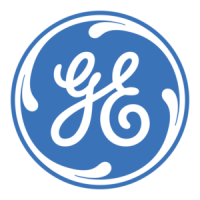– 25 –
Control Board
The control board is mounted in a housing that is attached to the inside of the control panel. The control
board and housing are replaced as an assembly. The control board assembly is held in place by 4 Phillips-
head screws and 3 tabs. The control board is programmed to recognize 6 modes of operation.
Mode Name Description
Idle No cycle is selected. All LEDs, 7-segment display on front panel, load selections and
options are off. The door is unlocked. The control board is ready to take input from
user.
Standby A cycle is selected with the appropriate load selections and options. LEDs and 7-segment
display on front panel are on. The door is unlocked. The control board is ready to take
user input to either modify cycle selections or start a selected cycle.
Run The control board is executing the currently selected cycle. The door is locked.
Pause The control is stopped by user during the execution of a cycle. LEDs and 7-segment
display on front panel stay on, all loads are turned off. The door is unlocked. The control
board is ready to take user input to either modify, resume, or cancel the cycle.
End of Cycle A cycle is completed. LEDs and 7-segment display on front panel stay on, all loads are
turned off. The door is unlocked. The control board remains in this mode until the door
is opened or after 2 hours have passed.
Fault The control board detected a critical failure condition. The 7-segment display shows the
fault code, all loads are turned off. The fault code can only be removed in the service
test mode. (See Service Test Mode.)
Operation of the control board can be checked by using the service test mode. (See
Service Test Mode.)
Specifi c failures associated with the control board can initiate error codes E52, E57, E58, E70, and E71. (See
Service Test Mode.)
(Continued Next Page)

